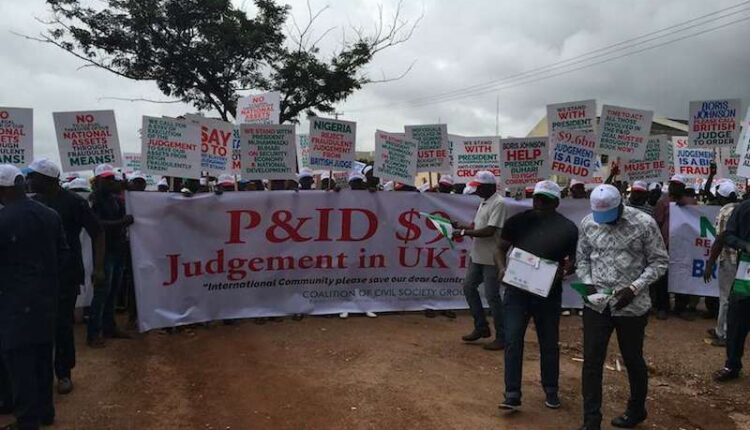Joseph Irikefe
The Supreme Court in the United Kingdom (UK) has dismissed the appeal filed by Process & Industrial Development (P&ID) that the £43m award in favour of Nigeria should be paid in Nigerian currency and not pound sterling.
The Global Arbitration Review (GAR) reports that on Tuesday, October 22, 2025, a five-member panel of the UK Supreme Court dismissed P&ID’s appeal, ruling that legal costs should be paid in the same currency in which they were billed and paid.
The court found no error in the earlier decision of Justice Robin Knowles to order P&ID to pay Nigeria’s costs in British pounds rather than naira. It also rejected P&ID’s claim that Nigeria had gained an undue financial advantage from the currency decision.
The case arose after Nigeria successfully overturned two arbitral awards granted to P&ID—worth over US$11 billion including interest—on grounds of fraud and public policy violations. The Commercial Court, in 2023, found that the awards had been “procured by fraud” and were therefore void.
In pursuing the challenge, Nigeria incurred legal expenses amounting to £44.2 million, billed and paid in sterling through 116 invoices between November 2019 and November 2024.
P&ID had argued that the costs order should be made in naira, claiming that paying in pounds would give Nigeria a “windfall” due to the sharp depreciation of the naira since 2023, when it was allowed to float freely.
However, the Supreme Court rejected that argument. In a joint judgment delivered by Lord Hodge and Lady Simler, with the concurrence of Lords Reed, Stephens, and Richards, the Court held that an order for costs “is not intended to compensate for loss” but rather represents a statutory indemnity for expenses incurred in litigation.
“As Nigeria had incurred liability and made payments in sterling, the court ought to make a costs order in sterling,” the Justices ruled.
The Court further emphasized that costs awards are discretionary and not compensatory in nature, distinguishing them from damages in tort or contract cases. It warned that adopting P&ID’s approach—requiring inquiries into how litigants fund their legal fees—would create “disproportionate and expensive satellite litigation.”
The judgment effectively reaffirms the principle that costs are to be awarded in the currency in which the legal services were billed and paid, unless there are exceptional or abusive circumstances.
In conclusion, the Supreme Court dismissed P&ID’s appeal and ordered the company to pay Nigeria’s costs on the standard basis.
In 2010, P&ID signed a deal with the Nigerian government to build a gas processing plant in Calabar, Cross River State. However, the project never took off, with P&ID claiming that Nigeria failed to honour its part of the agreement.
The Nigerian government, on the other hand, said the deal was fraudulent and designed to cheat the country. P&ID denied the accusations, describing them as “false allegations and wild conspiracy theories,” and took the matter to court.
In 2017, an arbitration tribunal ruled in favour of P&ID, ordering Nigeria to pay $6.6 billion in damages, plus interest, which later grew to about $11 billion.
But in October 2023, a major breakthrough came for Nigeria. Justice Robin Knowles of the Commercial Courts of England and Wales ruled that the award was obtained through fraud, upholding Nigeria’s argument under Section 68 of the English Arbitration Act of 1996.
The court found that P&ID had bribed Nigerian officials involved in the 2010 gas deal and illegally accessed confidential government legal documents during the arbitration.
As a result, the judge not only nullified the $11 billion award but also ordered P&ID to pay £43 million to Nigeria as compensation for legal costs and related expenses.


